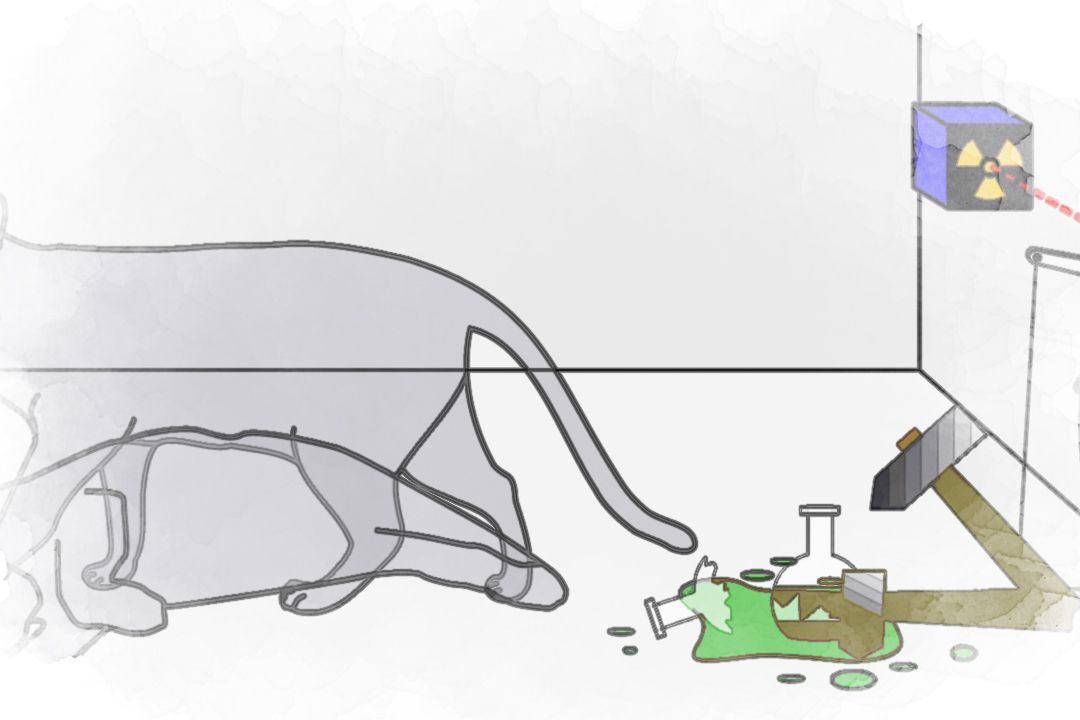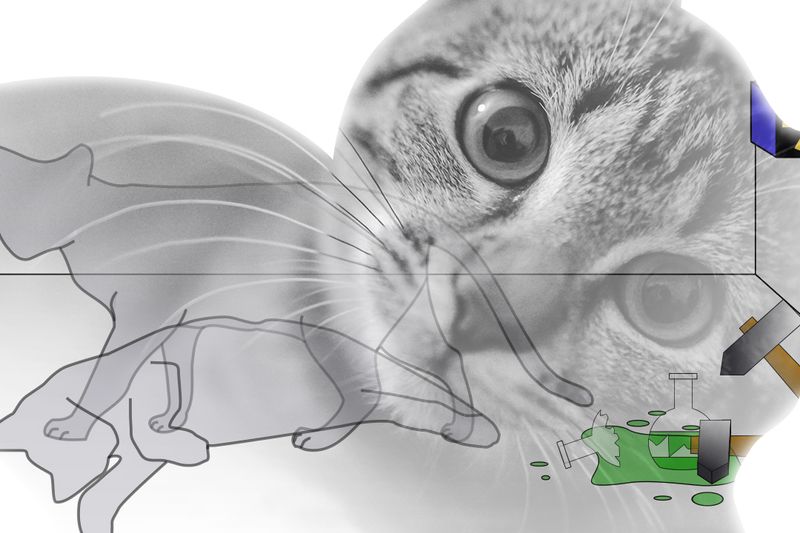And killed the cat

Schrodinger's Cat
In the quiet town of Quantumville, the eccentric and brilliant scientist, Alexander, was known for his wild thought experiments that stretched the minds of anyone willing to listen. His latest intellectual adventure was inspired by a rather unusual source—a cat named Sophia. Sophia was not just any cat; she was Alexander’s muse, a grey-striped feline with eyes as deep as the mysteries of the universe. Her curiosity was as boundless as space itself, often leading her into comical escapades that both amused and frustrated Alexander.
One particularly lazy afternoon, as Alexander observed Sophia weaving in and out of the shadows, an idea struck him like a photon's collision. The concept of superposition, the core of quantum mechanics where particles could exist in multiple states at once, could be explained through the antics of Sophia. Alexander hastily sketched out his idea, with Sophia as the centerpiece. In this thought experiment, he mused, Sophia could be simultaneously considered both alive and dead, her fate tied to the random decay of a radioactive atom.
Curiosity is the lust of the mind.
— Thomas Hobbes (1588-1679)
These words resonated with Alexander as he watched Sophia approach a sealed box that he had crafted. The box was a physical manifestation of his mental machinations, adorned with a perplexing arrangement of tubes and wires, and within it, a mechanism connected to a vial of harmless gas that mimicked the poison of his thought experiment. Sophia, ever curious, pawed at the box, her eyes alight with intellectual desire, mirroring Alexander’s own. The townspeople chuckled, seeing the man and his cat in their element, chasing the tails of enigma.
As the days passed, Alexander's experiment grew in fame, with Quantumville's residents engaging in fervent debates about the reality of Sophia's state. Was she alive or was she dead? The paradox of Sophia's curiosity became the town's greatest riddle, reflecting the complexity of the mind's endless quest for answers.
The conversations always circled back to Alexander's experiment, but it wasn’t the mechanics or the science that intrigued the people—it was the fun of it all. The local baker, Mrs. Dough, crafted cookies in the shape of cats split down the middle—one side frosted with ghostly white icing, the other a vibrant green. The children in town played "Schrodinger’s Cat" by hiding in boxes and declaring themselves unseen, both there and not, much to their parents’ exasperation and laughter.
Through it all, Sophia was unfazed, her interest in the box unwaning. One sunny morning, as Alexander was scribbling down observations, Sophia made her move. With a swift, deft leap, she landed atop the box, her weight triggering the mechanism inside. A hiss filled the room as the harmless gas released, fogging the glass as Sophia peered inside with an air of triumph.
Alexander, momentarily startled, burst into laughter. The cat had made a mockery of the conundrum, choosing to be both the observer and the subject, rendering the experiment delightfully absurd. In that moment, Sophia had transcended her supposed dual-state and simply existed as she was—a cat driven by curiosity, propelling the minds of those around her to indulge in the pure joy of wonder.
The tale of Sophia and Alexander became a lighthearted legend in Quantumville, reminding everyone that the pursuit of knowledge could be as pleasurable as it was profound. It was an experiment that never truly concluded because, in the hearts and laughs of the townsfolk, Sophia would forever be Schrodinger’s cat—a paradox wrapped in a mystery, playfully eluding the grasp of certainty.

The planksip Writers' Cooperative is proud to sponsor an exciting article rewriting competition where you can win part of over $750,000 in available prize money.
Figures of Speech Collection Personified
Our editorial instructions for your contest submission are simple: incorporate the quotes and imagery from the above article into your submission.
What emerges is entirely up to you!
Winners receive $500 per winning entry multiplied by the article's featured quotes. Our largest prize is $8,000 for rewriting the following article;

At planksip, we believe in changing the way people engage—at least, that's the Idea (ἰδέα). By becoming a member of our thought-provoking community, you'll have the chance to win incredible prizes and access our extensive network of media outlets, which will amplify your voice as a thought leader. Your membership truly matters!


